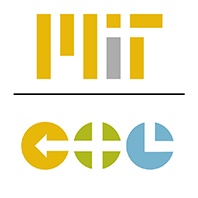The 13th annual MIT SCALE Supply Chain Research Expo took place January 19-22 as an online event, drawing its largest audience ever to explore research projects-in-progress by graduate-level supply chain management students from around the world. Read more...
A new book collecting insights from MIT CTL researchers and others, Supply Chain Management and Logistics in Emerging Markets: Selected Papers from the 2018 MIT–Scale Latin America Conference, has just been published in hardcover and digital formats. The collection of research was edited by Hugo Yoshizaki, Christopher Mejía Argueta, and Marina Guimarães Mattos.
ZLC led work on development and delivery of a master's level pilot MOOC as part of the HELP initiative (Healthcare logistics Education and Learning Pathway), a three-year project funded from the ERASMUS+ Programme and coordinated by LAB University of Applied Sciences, Finland. The aim has been to develop educational programs for healthcare logistics.

Higher education research leader QS Quacquarelli Symonds has recognized the MIT Center for Transportation and Logistics' Supply Chain Management master's program as the #1 SCM master's program in the world in its 2021 university program rankings. Read more...

MIT Professor Yossi Sheffi, Director of MIT Center for Transportation talked with Dr. Alexis Bateman on March 5, 2020 about global supply chain impacts of the COVID-19 coronavirus. Watch the recording...

Due to global concerns about the COVID-19 coronavirus disease, some SCALE Network centers are canceling or virtualizing large events scheduled for the spring of 2020. See affected events...

175 Master's and Graduate Certificate students from the six global SCALE Network centers came together in Cambridge, MA in January for SCALE Connect 2020. Read more...

The Ningbo Center for Supply Chain Innovation Institute China (NSCIIC) held an opening ceremony on September 9, 2019 for their new building in Meishan, in the Sichuan region of China.

The MIT Global SCALE (Supply Chain And Logistics Excellence) Network’s master’s in Supply Chain Management has been ranked #1 in the world by Paris-based EdUniversal for the fourth consecutive year. Read more on the CTL site.

Spanish newspaper El Mundo has ranked MIT Global SCALE Network's master's program the No. 1 master's program in supply chain and logistics in Spain for the 9th consecutive year. El Mundo is one of Spain's largest news outlets, and one of the country's news sources of record.
